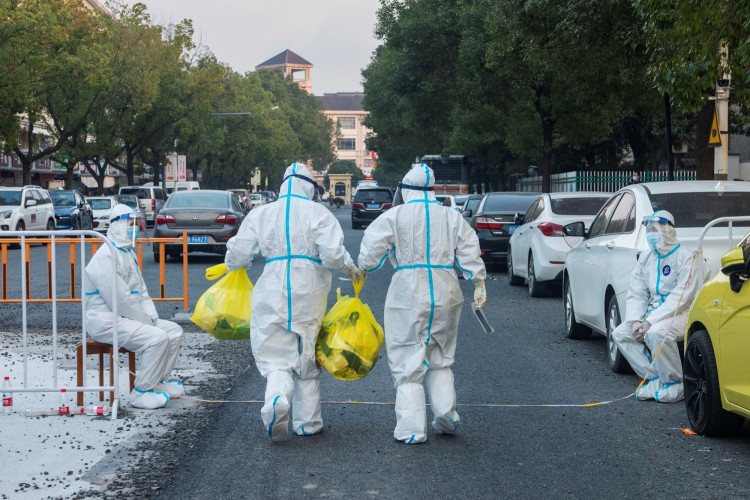After the country's pandemic regulations were abruptly undone last week, COVID-19 is now quickly spreading through Chinese homes and workplaces. This has caused uncertainty on the ground as understaffed hospitals struggle to handle an increase in cases.
In order to accommodate the massive surge of patients, China's hospitals swiftly boosted the capacity of their fever wards, but these have been quickly filling up, in part because the message that it is okay to stay at home if you contract the virus is still getting out there.
Significant statewide shortages of medications used to treat the cold or the flu have been caused by a rush on pharmacies. Likewise, COVID-19 home test kits are difficult to find.
Even if Beijing's restaurants are now permitted to reopen, there aren't many people eating there, and the city's streets are quiet. Although many employees are being told by their employers that they should go back to work, they don't want to.
All of this makes sense when you consider that the government had only a few weeks earlier declared lockdowns to be required, that there would be no deviation from zero-COVID, and that individuals who were sick must travel to centralized quarantine centers.
The administration is now pushing the narrative that contracting COVID-19 is not something to be concerned about, the disease is spreading like wildfire, and the goal of returning each outbreak to zero cases has been abandoned.
It was anticipated that China would ease COVID limitations considerably more gradually and slowly.
Street protests followed, with protesters yelling for the restoration of their former lives. They desired to resume their ability to move freely. Police clashed with protesters, and they were chanting for Xi Jinping, the leader of China, to step down and for the Communist Party to cede control.
This was the final straw that caused zero-COVID to collapse.
China's older population is still not fully vaccinated, and the government's swift reversal of three years of zero-COVID has caused chaos. These factors raise concerns that the country's pivot came too abruptly and with insufficient planning.
According to a medical professional who is not permitted to speak to the media, one hospital in Beijing has asked patients to sign disclaimers confirming that being admitted carries the risk of contracting COVID-19. Hospitals in Shanghai are publishing suggestions on their social media profiles about how to deal with COVID-19 if infected, while also advising people not to visit facilities unless they have serious symptoms.
China's policy reversal has also shifted analysts' and investors' expectations, complicating projections of how its policy adjustments will affect economic development. Chinese airlines and travel-related equities climbed on Monday, despite broader indexes falling, though investors are bracing for market volatility in 2023 as the country begins its reopening process.





